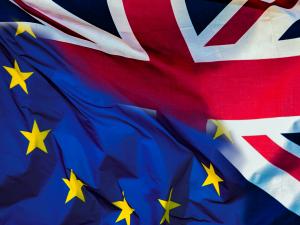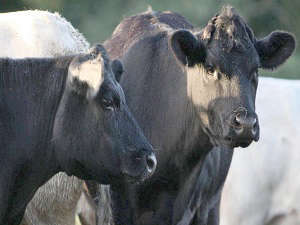
By Harriet Line
Northern Ireland was "very close" to reaching a Brexit agreement before the pausing of talks last month, the Democratic Unionist leader has claimed.
Arlene Foster said that the Stormont parties had almost reached a deal, and expressed her hopes that they would "pick up where we left off" after the General Election.
The former first minister of Northern Ireland told a meeting of the pro-Brexit Bruges Group in Mayfair, central London: "While the General Election is likely to give the Prime Minister a stronger hand to push for the kind of Brexit that she wishes to see delivered, in Northern Ireland it has run the the risk of polarising an opinion that was coalescing around an agreed way forward.
"At home we may not have agreed on the leave or remain issue, but we were very close to agreeing on the kind of EU exit that we wanted to see.
"And on this basis, I believe that there is room and a reason for optimism."
Ms Foster added: "I hope that once the election dust settles, yet again we can once again pick up where we left off."
Ms Foster told those gathered at the Lansdowne Club that she knew of "no one" who wished for a "hard border on the island of Ireland" post-Brexit.
The DUP leader, who was born and raised in a border constituency, said she was "acutely aware of the importance of the ability of people and goods to move freely across the land frontier with the Republic of Ireland".
She said a land border would make Northern Ireland "different", but she did not believe that a "circular argument about some ill-defined and ill-conceived so-called special status for Northern Ireland is helpful", adding that it was "probably likely to be counterproductive".
Ms Foster said she was "prepared to be flexible about the precise terms and timings" of a Brexit deal for Northern Ireland, and said the best way to achieve a deal was to "get the Stormont Assembly and Executive up and running as quickly as possible".
She also told those gathered that the "most important" union for Northern Ireland was with Great Britain, and said a border between the two was "absolutely" a "red line".
"There's a real need for us not to have a border down the middle of the Irish Sea because that would cause incredible difficulty for our trade and businesses.
"Therefore there is a need to be flexible but we also have to recognise the constitutional proprieties that we are part of the United Kingdom - a nation which has voted to leave the European Union - and now we need to find solutions to that."


 Vaccination appeal amid ‘very concerning’ increase in flu cases
Vaccination appeal amid ‘very concerning’ increase in flu cases
 Police probe report of shot fired at a house in Newry
Police probe report of shot fired at a house in Newry
 MLAs clash with officials over Bill to make school uniforms more affordable
MLAs clash with officials over Bill to make school uniforms more affordable
 Further bluetongue testing after 44 more suspected cases found
Further bluetongue testing after 44 more suspected cases found